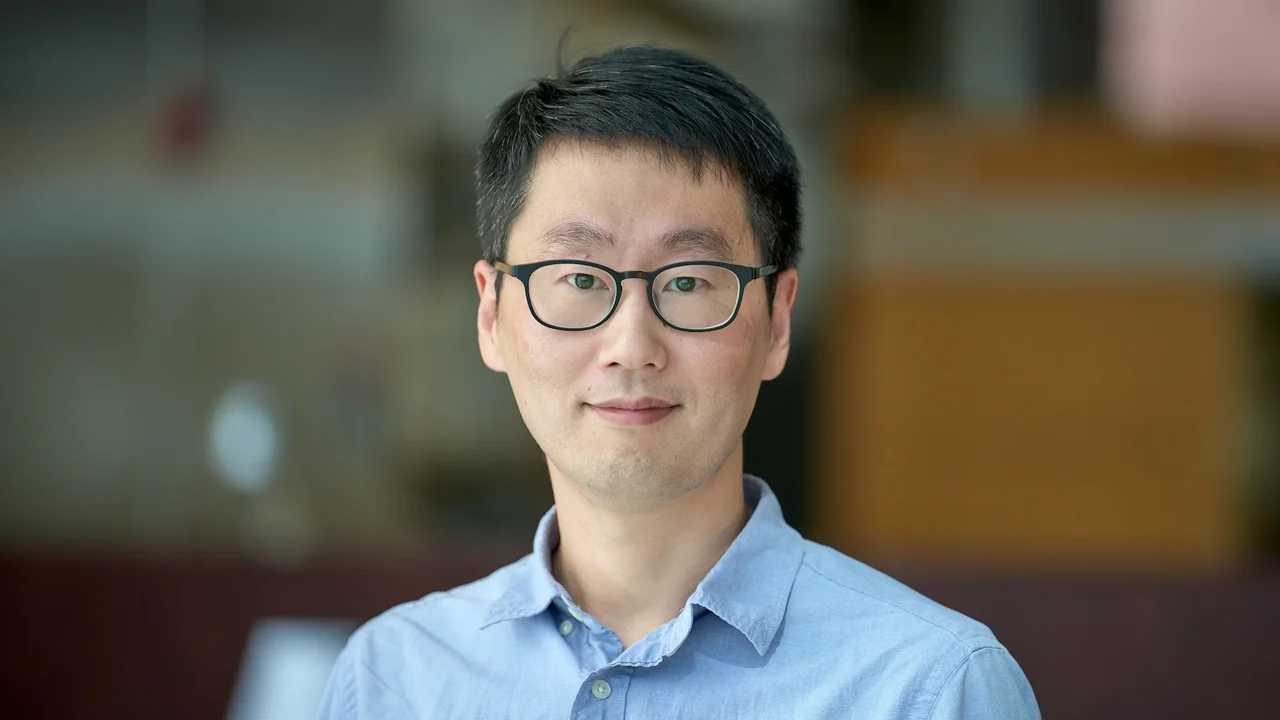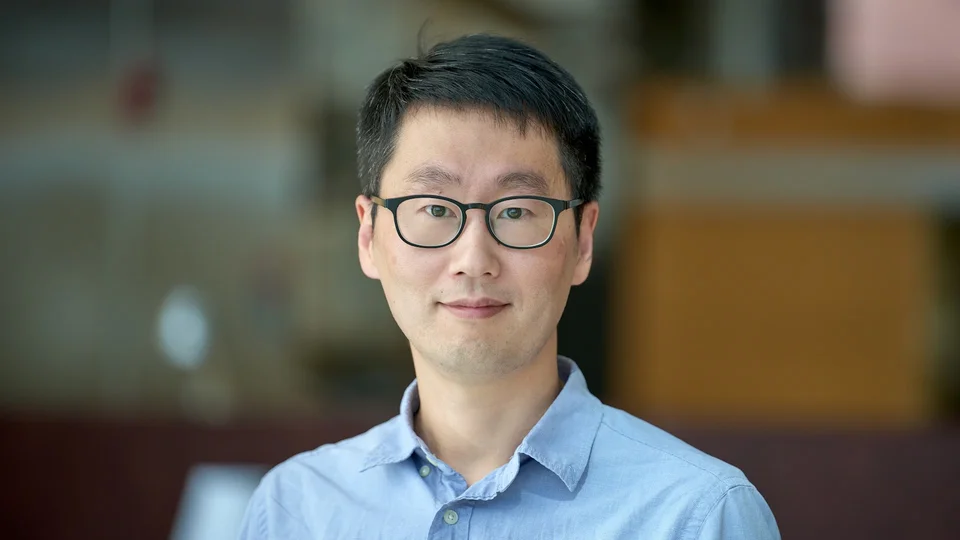
Professor Park receives O. Hugo Schuck Best Paper Award at the 2022 American Control Conference
Professor Shinkyu Park has been awarded the 2022 O. Hugo Schuck Best Paper Award (Theory) from the American Automatic Control Council (AACC) for his paper investigating a new mathematical framework to study decision making in multi-agent systems.
About
By David Murphy
KAUST Assistant Professor of Electrical and Computer Engineering Shinkyu Park has been awarded the 2022 O. Hugo Schuck Best Paper Award (Theory) from the American Automatic Control Council (AACC) for his paper titled, ”KL Divergence Regularized Learning Model for Multi-Agent Decision Making.” He was presented with the award during the 2022 American Control Conference (ACC) held from June 8-10, 2022, in Atlanta, U.S.
The O. Hugo Schuck award is given to the author of a paper published in ACC conference proceedings and presented at the preceding ACC. One award is for a paper emphasizing contributions to theory, and the other emphasizing significant or innovative applications. Criteria for selection include the quality of the written and oral presentation, the technical contribution, timeliness, and practicality. This year, only one paper, theory, was awarded.
The ACC is considered one of the three premier conferences devoted to control systems, along with the IEEE Conference on Decision and Control and the European Control Conference. The three-day conference brought together researchers and practitioners from around the world to discuss the latest scientific advances and application successes in the engineering and science of control systems.
“I’m very excited and honored to receive such a prestigious award,” Park said of his award win. “I also want to thank Professor Naomi Leonard, Edwin S. Wilsey Professor of Mechanical and Aerospace Engineering at Princeton University, for co-authoring the paper.”
Park and Leonard’s award-winning paper investigated a new mathematical framework to study decision making in multi-agent systems, a computerized system composed of multiple interacting software components or "agents." Applications from their study range from route selection for autonomous vehicles to the regulation of consumer electricity demands in smart grids.
Traditionally, game theory models were used in multi-agent decision-making problems to determine how incentivized decision-making agents could learn and make effective decisions. However, the agents tend to make suboptimal decisions when the incentive mechanism is delayed. For example, autonomous vehicles driving the same route and increasing congestion, or consumers increasing their electricity consumption during peak hours.
“In our paper, we proposed a novel higher-order decision-making model that allows the agents to make effective decisions despite delayed incentives. Our findings can be applied to design algorithms for networked robots to learn to coordinate and carry out team missions in real-world applications where delay in data communication is prevalent,” he explained.
Embracing future technologies
Professor Park joined KAUST in January 2021 to take up the role of principal investigator of Distributed Robotics and Autonomy (DSA) Group. Before joining the University, he was an associate research scholar at Princeton University, U.S., where he engaged in cross-departmental robotics projects.
Park’s research focuses on the design and control of multi-robot systems. His past research projects include designing animal-borne sensor networks to monitor wild animal groups in their natural habitats. He also created a fleet of urban autonomous surface vessels capable of transporting people, providing deliveries and trash removal services through urban canal networks. In 2019, MIT News highlighted a selection of his research achievements.
The DGA group at KAUST explores various topics in multi-robot systems to address challenges in robotics applications requiring high degrees of coordination among robots, such as environmental monitoring, search and rescue, and laboratory/factory automation.
Many of the group’s research themes are tied directly to real-world applications. These applications include building networked underwater robots to automate underwater environmental monitoring, a heterogenous team of ground and aerial vehicles to survey and collect target resources and remove hazardous materials, and multiple manipulators or robotic arms for ”smart factories” where robots automate the manufacturing and assembly processes.
“We conduct fundamental research to understand how individual decision rules can result in collective intelligence in a large team of robots. Based on this, we design algorithms that allow the robots to learn and execute strategic planning to complete assigned missions. In addition to such theoretical investigations, we conceive prototypes of multi-robot systems to validate the theory through field deployments,” Park explained.
“My research team positively impacts our society by providing robotic solutions for persistent monitoring, the restoration effort of coral reefs and performing dangerous jobs to assist humans.”
